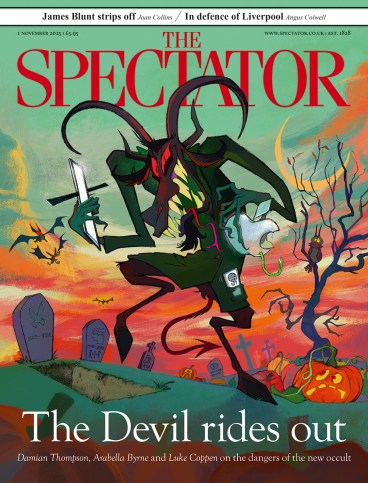
Few readers can claim to be what Samuel Taylor Coleridge called ‘Mogul diamonds’ – those who not only ‘profit by what they read’, but ‘enable others to profit by it also’. If such people were rare in Coleridge’s time, then today, when reading is in dramatic decline, they are scarce enough that even the white rhino might feel a little smug. Anyone seeking a glimpse of this endangered reader could be forgiven for thinking that a university English department was its most likely habitat, but they would be wrong. Behind the brown office doors where academics labour, one is more likely to find the common squirrel, hoarding information and burying it under dense soil. Which makes Robert Douglas-Fairhurst a doubly rare sort: a reader of Mogul status and a professor of English literature who shares his nuts.
His Look Closer, a distillation of more than 20 years of teaching at Oxford University, is not only a generous offering, but a welcome intervention in the alarming decline of literacy. At a time when more than a third of adults in the UK say they no longer read, when children spend more time absorbed in a screen than a book, it makes a passionate case for the centrality of reading to human experience. For Aristotle, man was the social animal, but for Douglas-Fairhurst, he is the reader – the animal who, like a literary detective, ‘sifts life for significance’, whose ideas and feelings about the world are based largely on what he reads.
The book is divided into short chapters that each contain extracts exemplary of an idea or literary technique. ‘Like applying a magnifying glass to a piece of embroidery’, they show us how a text is ‘stitched together’. The invitation is to perform what Douglas-Fairhurst calls ‘slow reading’ – a term he borrows from Nietzsche, who thought that to read well was to read ‘slowly, profoundly, attentively… with the mental doors ajar’. Anyone who has studied English at university level will be familiar with this approach, but Look Closer is not aimed at them. It is for the reader who has yet to discover how much meaning accrues in the blank spaces of a poem; how we are turned from passive to active readers when writers such as Sally Rooney refrain from describing how a piece of dialogue is spoken; how the repetition of certain words in a novel is rarely accidental but evidence of pains-taking design.
The chapters may be short, but they contain a huge amount of compressed energy and passion. Douglas-Fairhurst is like that one teacher we had at school who, despite the years, was still hopelessly in love with their subject. There is a giddiness to the way he makes connections between seemingly disparate things. We go from Virginia Woolf’s Flush to Hannibal Lecter, from Monty Python to Hamlet, so that the entire book reflects his contention that texts are like ‘spiders’ webs’: touch them ‘at any point and the whole structure instantly quivers into life’.

One of the drawbacks of learning from someone who, like Will Ladislaw in George Eliot’s weblike novel Middlemarch, has a ‘mind alive to every sort of connection’, is that we can’t always keep up. Which is why the sections where Douglas-Fairhurst takes us slowly and methodically through a text are so freshly engaging. In the chapter ‘Arguments’, for example, we are guided through Hamlet’s ‘To be or not to be’ soliloquy with such attentiveness to word choice, to meter, to rhythm, that it is like walking behind a wise old naturalist who, in leisurely flipping over rocks, reveals a whole other reality beyond the immediately visible.
Douglas-Fairhurst is at his best when he is teaching us how to read; but it all gets a little shaky when he tries to justify why we should read in the first place. This is not a problem unique to him. Part of the reason for the decline of reading is that, as a society, we have failed to make a meaningful argument for its value. I am a much more selfish person than Douglas-Fairhurst. I don’t, as he does, see reading as a way of ‘fine-tuning’ our capacity for empathy. I don’t think that we should read because, as he writes, science tells us it helps us live longer. For me, books aren’t a caddy of homeopathic tinctures that I carry around to balance my humours. I read because I am greedy. One set of eyes just isn’t enough. I want to see with what C.S. Lewis calls the ‘myriad eyes’ of literature. So if a reason to read must be given, it is that books are one of the few things in this world that meet our hunger for more life.







Comments